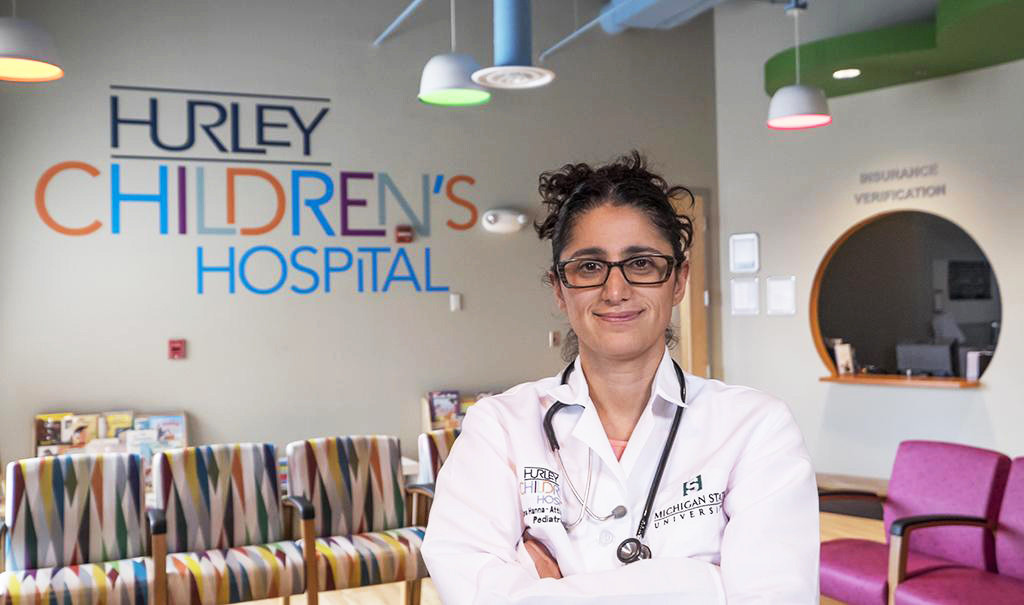The power of the book
Selection of What The Eyes Don’t See by Dr. Mona Hanna-Attisha by Reading Across Rhode Island promises to create a groundswell of citizen action, pushing back against lead poisoning and environmental racism
As much as Rhode Island has been a national leader in developing a screening program of lead poisoning in children, and creating enforcement mechanisms to correct problem housing, much of the attention by advocates in seeking to improve standardized reading test results has focused on interventions that do not prioritize improving housing and addressing health equity issues as upstream prevention opportunities.
As the research conducted by Anna Aizer has shown, following a cohort of Rhode Island children, the impacts of childhood lead poisoning appear to increase as the children age into teenagers and adults.
PROVIDENCE – Here is an early advance warning for R.I. House legislative leaders who were never quite able to provide a “truthful” explanation about why a study commission on lead in drinking water never actually met for two years: the story of lead poisoning of children and families will be in the news next year, big time, and students and families across the Ocean State will be primed to ask plenty of difficult questions of elected officials.
Reading Across Rhode Island, a division of RI Center for the Book, has chosen as its 2019 selection the recently published book, What the Eyes Don’t See, written by Dr. Mona Hanna-Attisha, the program director for pediatric residency at Hurley Children’s Hospital in Flint, Mich., who played a critical role in publishing research on the extent of elevated levels of lead poisoning of children in the city.
The book recounts the story of Flint as it unfolded through the eyes of Hanna-Attisha, a pediatrician. As many public health advocates know, the situation in Flint is still not resolved and residents living there still do not have access to clean, safe, drinking water; most are still dependent on bottled water.
In an interview last year, Hanna-Attisha told ConvergenceRI: “What we’ve seen in Flint is a terrible story, because of what happened. But it has had incredible ripple effects around the medical and public health community, for the better.” [See link below to ConvergenceRI story, “There are Flints everywhere.”]
Hanna-Attisha continued: Many [clinicians] thought that lead was a problem of yesterday, before Flint. Doctors believed that they didn’t need to worry about lead. Now, because of Flint, it has awakened a national consciousness about the dangers of lead. States are mandating universal screening. It’s been an amazing, positive ripple.”
Before Flint, lead in drinking water was often unrecognized in the public health community, or minimized, she explained. “Now, many other communities are increasing monitoring of lead in water in school districts.”
Lost in translation
All too often, in the aftermath of a public health crisis, when the stories are recounted, the focus is on the crisis, on the facts and figures, on the legal and political battles – but not on the future health of families and children involved, and the courage shown by citizens in confronting the state authorities whose complaints are often discounted or disparaged.
Part of her reason in writing the book, Hanna-Attisha explained during the interview, was to create a different narrative.
“My charge, my work these days, is to share the message: there are Flints everywhere,” she said. “Children [in Flint] are disproportionately affected by some kind of poverty and violence. Lead poisoning is an added source of toxic stress.”
What needs to be put in place is not rocket science, Hanna-Attisha continued. “It is the same things that are needed everywhere: access to parenting support, early education, and child care. We want to share our playbook with cities across the nation. I have a book that is coming out in a few months [the publication date is June 19, 2018], What the Eyes Don’t See, that I hope will keep the story alive.”
Too many people, she concluded, have forgotten about Flint. “My goal is to make sure that the lessons we have learned are shared. Unfortunately, we are often really good at repeating our mistakes.” Her goal was to share the Flint story, and “to share our lessons about environmental injustices that affect the most vulnerable populations, lessons we can take to heart wherever we live. You don’t have to come to Flint; they are right in our backyards.”
One book, one state
The effort by Reading Across Rhode Island will formally kick off in January, with outreach to schools, libraries and bookstores, to make copies of the book as widely available as possible. The target audience is very broad, according to Kate Lentz, the director of Reading Across Rhode Island – “from eighth-grade students through senior citizens.”
RI Center for the Book is a statewide organization devoted to promoting personal and community enrichment by celebrating the art and heritage of reading, writing, making, and sharing books.
Since 2003, Reading Across Rhode Island Rhode Island, through its “One Book, One State” program, has focused on a single book selected to stimulate meaningful discussions across the state. In partnership with the Center for the Book, the initiative provides thousands of books at no cost to schools and readers to fuel discourse that flows from connecting over a shared story.
Sen. Sheldon Whitehouse is slated to serve as honorary chair of the effort in 2019, according to Lentz.
Visit to Rhode Island
Hanna-Attisha will be coming to Rhode Island to give a free public talk on April 11, 2019, according to Lentz.
Lentz said that the book provided a compelling story that also involved issues of immigration, environmental justice, sexism and racism.
Previous books selected by Reading Across Rhode Island have included The Hate U Give by Angie Thomas in 2018, and Just Mercy by Bryan Stevenson in 2017.






